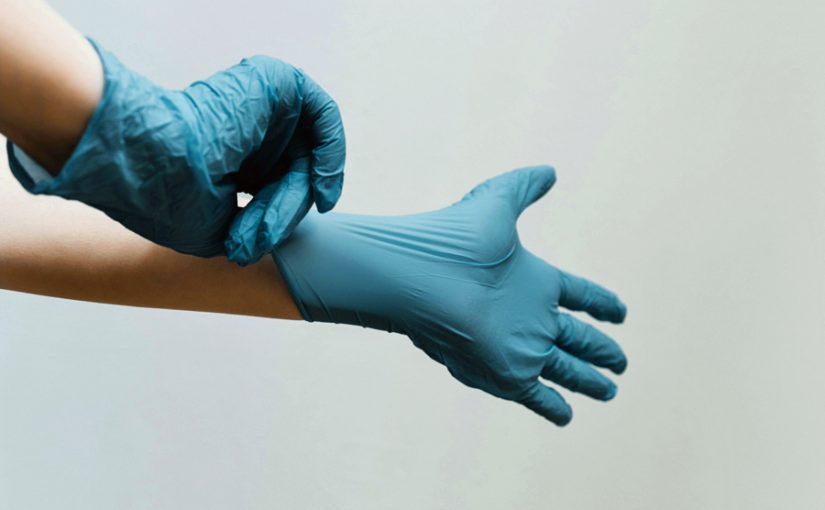A homily for the Sixth Sunday in Ordinary Time, February 11, 2024
Lv 13:1-2, 44-46, 1 Cor 10:31—11:1, Mk 1:40-45
In the classic 1982 film “E.T. the Extra-Terrestrial,” the little sister played by Drew Barrymore dresses the tiny alien botanist in a gown and wig and costume jewelry, which startles her brother Elliott. “You should give him his dignity,” Elliott demands of Gertie. “This is the most ridiculous thing I’ve ever seen.”
Dignity was what Jesus gave to the lepers he cleansed, perhaps even more than their restored health and an end to their physical pain. Jesus ended their emotional and spiritual torment as well.
Leprosy — known today as Hansen’s disease — terrified ancient peoples because of how it ravages the human body. They didn’t understand its source, they didn’t understand that it’s hard to transmit to other people, and they probably classified any number of unrelated and less-serious diseases as leprosy because those ailments also involved skin rashes or muscular weakness.
By pushing so-called lepers into ghettoes or colonies or the periphery of their cities, the so-called clean people ensured that those Hansen’s patients would continue to pass the bacterial disease among themselves by continual exposure, and therefore never heal.
It’s hard to say the “clean” majority meant well, but given their limited scientific knowledge and their profound superstitions, they did think they were acting for the good of the many by abandoning a few to the edges of society or excluding them from society altogether.
They were relying on what Leviticus decreed.
The Old Testament Book of Leviticus is far more than a harsh Emily Post book of etiquette. This catalog of how to act, what to eat and not eat, how to dress — in short, a book of rules about every aspect of Israelite life — is often viewed as highly restrictive and oppressive. And rightly so. It’s described as controlling every aspect of life because absolutely nothing escapes Leviticus’s stated or implied regulations.
In the millennia before antibiotics and other medical and psychological treatments, the strictness of Leviticus kept The Chosen People alive in harsh conditions.
But the time for Leviticus has come and gone (which makes the people with tattoos quoting Leviticus a bit daft and paradoxical).
The healing power of love proclaimed and practiced by Jesus put the Book of Leviticus on the shelf of historical curiosities.
Not that we as a society didn’t try to dust it off during the height of the Covid pandemic, and perhaps in the short period since…
Let’s think back to the days of shutdown and lockdown and remember what it took for any of us to get a loaf of bread, a gallon of milk and a dozen eggs.
Store hours were limited. Purchases were rationed, if products were even on shelves. Checkout stations were sealed off more tightly than Cones of Silence.
If we ventured out, we masked and gloved and face-shielded and, if we could have, we would have worn hazmat suits and oxygen masks instead of N95s.
And, ever so briefly, we started noticing essential workers.
Now, maybe it’s a stretch to say that, until the pandemic, we treated grocery store floor-moppers the way ancient people treated lepers. Maybe it’s a stretch to say we found truckers to be second-class citizens. Maybe it’s a stretch to say we believed that nurses and EMTs didn’t give us undivided attention even though they had dozens of other patients to care for.
Maybe it’s a stretch to say we emotionally or socially ghettoized all those people who did essential jobs. And who did them far better than we gave them credit for.
Then Covid came along and thrust essential workers into the spotlight, and we hailed them as heroes and banged pots and pans and wrote folk songs to celebrate them. We sent them pizzas and moo goo gai pan and prosecco and carnations.
That was then.
How about now, though?
Are we still affording every sister and brother the dignity they deserve?
Come to think of it, did we truly recognize them as sisters and brothers when they were risking sickness and death to keep us alive and well and fed, to keep our lights and heat and water working? Or were they still mere cogs, albeit essential ones?
Did we, do we see the face of Christ in each of them?
Did we, do we allow ourselves to see the face of Christ in each of them?
They deserve the same respect and dignity that each of us seeks.
Dignity was what Jesus gave to the lepers he cleansed, perhaps even more than their restored health and an end to their physical pain.
Jesus demands that all of God’s children live in dignity.
Jesus demands that we ensure that remains true forever.
